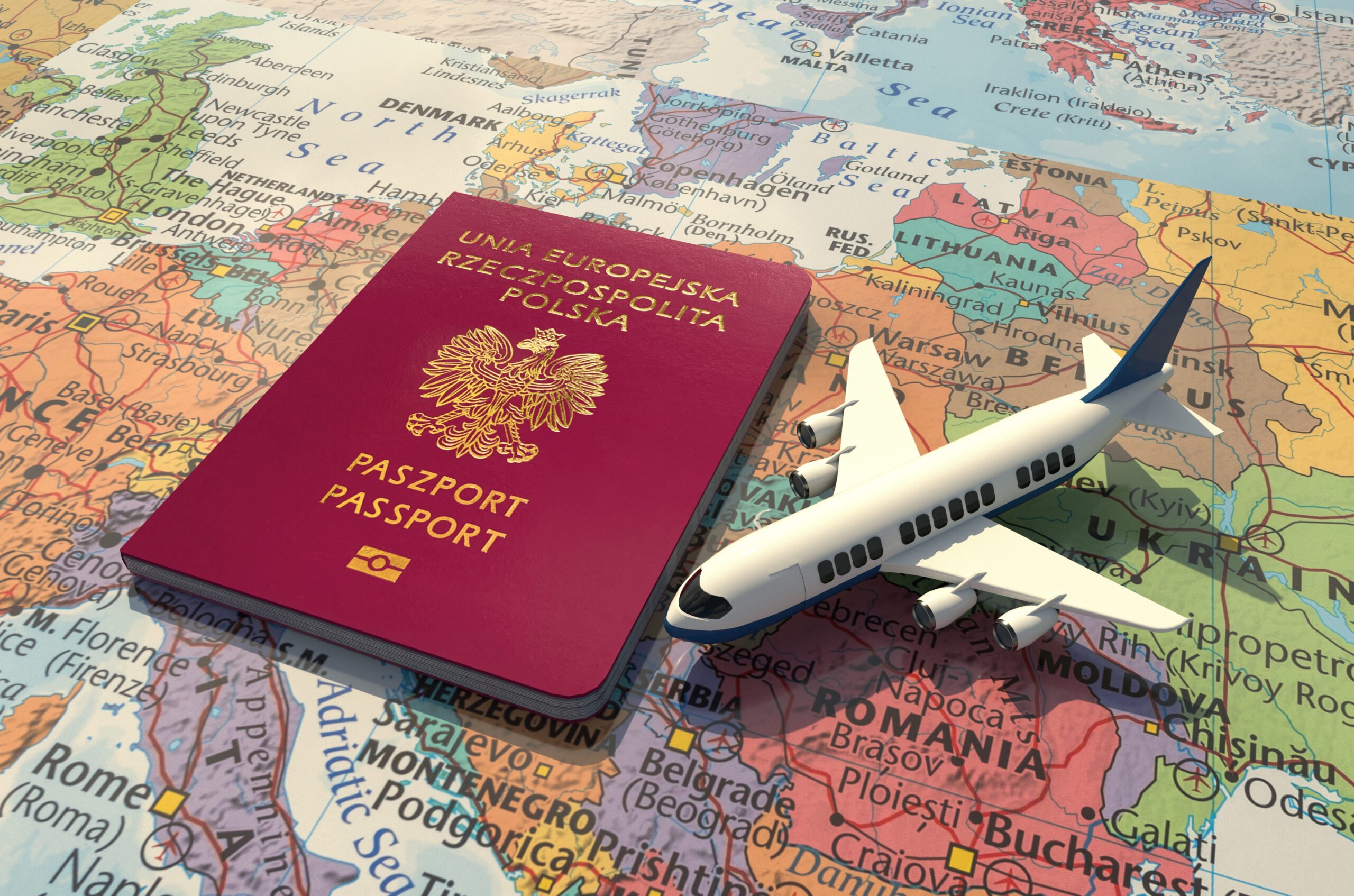Cyprus continues to be a top destination for international property buyers, retirees and remote workers seeking a new lifestyle in a Mediterranean setting. Whether you’re drawn by the island’s mild climate, attractive tax policies or relaxed pace of life, one crucial step to making your move is deciding which visa and residency options in Cyprus to aim for.
For citizens from the European Economic Area (EEA) and European Union (EU), Cyprus remains welcoming. You don’t need a visa, but proper documentation is required if you plan to take up employment or stay longer term.
If you’re from outside the EU or EEA – including the UK, US or Canada – Cyprus permits you to stay up to 90 days in any 180-day period. Beyond that, you must apply for a residence permit. There are various options available based on your employment status, income, family ties or investment in the country. Cyprus is not part of the Schengen Area, which has specific implications when calculating your stay.
Read on to learn about your Cypriot residency options in 2025.
Contents

Temporary residency permits
If you’re not ready to commit to a permanent move, a temporary residence permit may suit your needs. These one-year permits – commonly called “pink slips” – allow non-EU nationals to stay in Cyprus beyond the standard 90-day limit. It covers your spouse and any children under 18.
Pink slips are renewable annually but aren’t valid for those seeking paid employment within Cyprus. Applicants must remain in the country for no fewer than 275 days a year, meaning you’re limited to travel of no more than 90 continuous days abroad.
According to Cyprus Civil Registry and Migration Department, you must prove regular income from outside Cyprus to apply. In 2025, you need to earn least €10,000 annually per adult and €5,000 per child. Transfer these funds into a local Cypriot bank account.
Applicants must also undergo a medical check in Cyprus. This includes blood tests for communicable diseases and a chest X-ray to rule out tuberculosis. These health safeguards form part of the country’s public health policy.
Each application costs €70 per person, including dependents. The application process typically takes around six months, but you can remain in Cyprus while it is being reviewed. Once approved, you’ll receive your residence permit card.
For a closer look at the purchase process, claim your free copy of our Cyprus Buying Guide:
Permanent residency for third-country nationals
There are several visa and residency options in Cyprus to gain residence status for non-EU nationals. These are ideal if you wish to live in Cyprus more than one year or work while there. Many decide to pursue this path after first holding temporary status or purchasing property.
There are four common categories:
Residency via employment or self-employment
Category C: For entrepreneurs or business owners. You must show investment funds of at least €260,000. The business should benefit the local economy and must not compete with established domestic enterprises.
Category E: For individuals with a confirmed job offer in Cyprus. You must provide a formal employment contract, and approval depends on Labour Department assessments to ensure no Cypriot or EU citizen is better qualified for the role.
Residency through long-term stay (naturalisation)
You can apply for permanent residency after five years of legal continuous residence. During this time, you must not have been outside Cyprus for more than 90 days in any single calendar year. Additionally, you must still be under a valid employment contract – typically with at least 18 months remaining – at the time of application.
Residency through marriage to a Cypriot national
If you’re married to a Cypriot citizen, or plan to tie the knot, you are eligible to apply for permanent residency on that basis. The process is relatively straightforward, but documentary proof of your relationship, such as shared household bills or property ownership deeds, is essential.
Residency via passive income
Under Category F, non-working individuals with reliable income from pensions, investments or rental properties can apply for permanent residency. In 2025, you must show an annual minimum income of €24,000, sourced from outside of Cyprus. Additions apply for dependents: €4,800 for a spouse and €3,600 per child.
You’ll also need to show the funds have been deposited into a Cypriot bank account. For a couple with two children, you would need to transfer €38,400. This pathway is ideal for retirees or financially self-sufficient individuals.
Be aware that the permit does not automatically include the right to work in Cyprus.
Cyprus golden visa programme
Cyprus runs a property-based investment initiative that grants permanent residency to investors and their family members. Often called the “Golden Visa”, this programme is attractive due to its flexibility and relatively low investment threshold compared to other European countries.
To qualify in 2025, you must:
- Invest at least €300,000 (excluding VAT) in new-build residential property in Cyprus
- Demonstrate a secure annual income from abroad of at least €30,000
This income requirement increases with dependents: add €5,000 per spouse and child, and €8,000 per parent, if included.
You must also deposit a minimum of €30,000 in a Cypriot bank account, locked for three years. Proof of clean criminal record and good health are mandatory, along with full property registration documents.
The permit is issued for life and allows residency for your entire family. However, permanent residency is not the same as citizenship. For naturalisation, you must reside in Cyprus for at least five years within seven, including the final full year prior to your application.
Alternate investment options also exist:
- Invest in Cypriot commercial real estate (minimum €300,000)
- Buy shares in a locally registered limited company that employs at least five staff
- Invest in units of a Cyprus-regulated collective investment scheme
Golden visa rules are subject to legal review, and changes may apply. Always check for the latest updates or speak to an immigration expert.
Download the golden visa guide
Digital nomad visas in Cyprus
Cyprus introduced a digital nomad visa scheme in 2022 to welcome location-independent professionals. Initially capped at 500 slots, the scheme was renewed in March of this year.
This visa allows remote workers employed outside Cyprus to reside on the island for 12 months. It can be renewed, allowing up to three years of total stay. Family members can join you but do not gain the right to work under this permit.
To qualify, you must demonstrate:
- A monthly net income of at least €3,500 (increased for dependents)
- Proof of employment or business activity registered outside Cyprus
- Valid health insurance and clear criminal record
You’ll enter Cyprus on a temporary visa and apply for the digital nomad permit within 90 days of arrival. The application typically takes between five and nine weeks. Nomads spending more than 183 days annually in Cyprus are considered tax residents, which may offer advantages depending on tax treaties between Cyprus and your home country.
It’s highly recommended to work with a legal expert specialising in long-stay visas to help avoid delays and ensure compliance.
How to apply for residency
Residency applications in Cyprus are managed by the Civil Registry and Migration Department (CRMD). International applicants must attend appointments in person, either at a local immigration office within Cyprus or through a Cypriot consulate abroad.
The process generally involves the following steps:
- Determine the visa or residency category that best suits your situation
- Gather your required documents and have them translated and legalised as needed
- Open a local bank account and transfer required funds, if applicable
- Book and attend your biometric appointment in Cyprus or at your local embassy
- Pay the relevant application fee
The government may request additional checks, including criminal background reports and medical evaluations. For property-linked applications, you must submit the registration documents and payment receipts for the qualifying investment property.
While you’re allowed to remain in Cyprus during the processing period, it’s important to keep records of your travel and any changes to your circumstances.
Documents required for residency
Although specific requirements vary by permit type, most residency applications require the following documents:
- Completed and signed application form
- Proof of income or employment contract
- Rental agreement or property purchase deed
- Proof of bank transfer and Cypriot bank account statement
- Valid passport (with at least six months left before expiry)
- Marriage and birth certificates for dependents
- Recent criminal record certificate with Apostille (translated to English or Greek)
- Health insurance plan valid in Cyprus
- School enrolment letter (if relocating with school-age children)
Some permit types, such as the permanent residence Category F, require an in-country medical check. This includes blood tests and chest X-rays conducted by authorised clinics.
Having an experienced lawyer review and submit your application can avoid delays and ensure everything meets Cypriot immigration standards. Learn how to find a Cypriot property lawyer before contacting professionals.
Next steps
Navigating the visa and residency options in Cyprus can feel overwhelming, but expert help is available. Whether you’re buying a home, investing or planning a remote working lifestyle, choosing the right visa is vital for a successful move.
At Your Overseas Home, we can offer access to bilingual legal professionals, qualified immigration advisers and property experts who understand the needs of international buyers.
Book your free consultation with us today to map your route to life under the Mediterranean sun.
Whether you’re relocating for work, retiring in the sun, or seeking long-term flexibility through property investment, understanding how to buy property in Cyprus can help you align your visa path with your home search. To decide where to settle, explore our guide to where to buy property in Cyprus – and take the next step with confidence.
FAQs about Cyprus visas and residency
EU/EEA citizens can live in Cyprus without a visa but must register if staying long term. Non-EU citizens, including those from the UK, US, and Canada, can stay up to 90 days in a 180-day period without a visa but need a residence permit for longer stays.
For Category F permanent residency, the minimum income is €24,000 annually for the main applicant, plus €4,800 for a spouse and €3,600 per child. For the golden visa programme, the minimum annual income is €30,000 plus supplements for dependents.
No. Cyprus is in the EU but not in the Schengen Area. This means time spent in Cyprus doesn’t count toward your 90-day Schengen visa limit and vice versa. It’s important for those balancing stays between Cyprus and mainland Europe.
Yes, if your income is earned from abroad. The digital nomad visa allows you to live in Cyprus and work remotely for a foreign employer or your own non-Cypriot business. Local employment is not permitted under this visa type.









